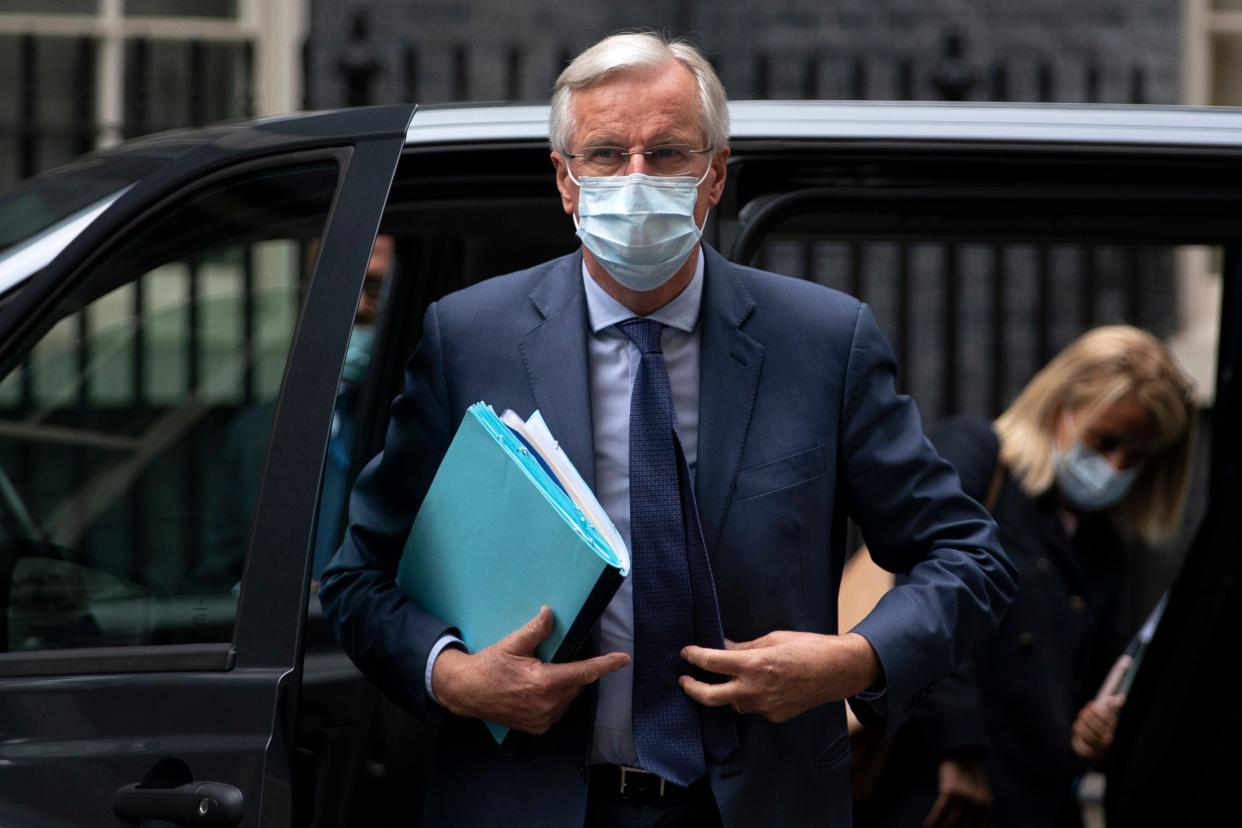Downing Street concedes that only ‘outlines’ of Brexit trade deal may be possible this year

Downing Street has hinted that a full Brexit trade deal may no longer be possible this year, raising the prospect of an economically damaging no deal in January.
The prime minister’s spokesperson publicly lowered the UK’s ambitions on Wednesday, coinciding that the current goal was to find the “outlines” of an agreement.
There has been almost zero movement in Brexit trade talks since the start of negotiations earlier in the year, with both sides dug in on issues like state aid, regulatory alignment, and fishing.
The fifth official round of negotiations is currently ongoing this week in London, with details about any progress due on Thursday afternoon.
EU chief negotiator Michel Barnier had dinner with his UK counterpart David Frost on Monday night to herald the start of talks, which on Thursday will look at the details of how civil nuclear cooperation and UK participation in union programmes might work.
Other topics discussed this week include governance, trade in services, law enforcement cooperation, fisheries, and transport – as well as the so-called “level playing field” on regulations.
“Round five negotiations are ongoing and we remain committed to working hard to finding the outlines of a balanced agreement,” the prime minister’s official spokesman told journalists in Westminster.
“We have been clear that discussions throughout this intensified process have continued to be constructive but significant differences still remain on a number of important issues.
“Our preference is to leave with an FTA [free trade agreement] as long as it guarantees our political and economic independence. But we will make sure that we are prepared for all possible scenarios.”
Last month Mr Johnson said there was “no reason” why a deal could not be sealed by the end of July. Both sides say they want an agreement in the bag by the autumn to give them time to ratify it by the end of the year when the Brexit transition period ends.
While the suggestion that UK negotiators may have given up on a full agreement could be a sign that talks have run out of road, they may also represent the firing of the starting gun on the political theatre required to do a deal. EU officials have said they believe political calls need to be made in Downing Street to begin a climbdown from existing positions, with British sources close to talks expressing similar views about the EU’s negotiating position.
Talks so far have captured little public attention and faded into the background of the coronavirus pandemic, which relegated them to video-conference status for months.
It is not clear what the outlines of an agreement would look like, and whether one being in place other than a full deal would see the consequences of a no deal at the end of the year.
While there is no legal basis for extending the current Brexit transition period, since the deadline to do so expired last month, some constitutional experts have suggested ways in which the UK and EU might stay tied together economically for longer using new agreements.
Read more
Johnson dismisses Russia report row as ‘Islingtonian Remainer’ plot
Food shortage fears as three quarters of hauliers to locked out of EU

 Yahoo News
Yahoo News 
